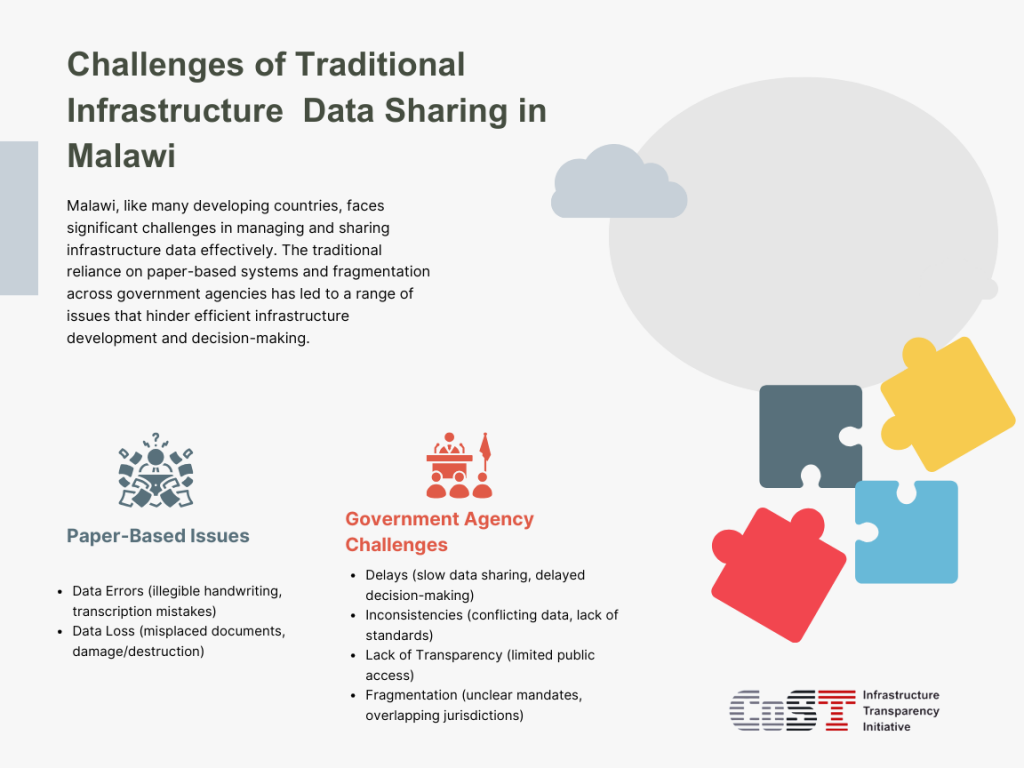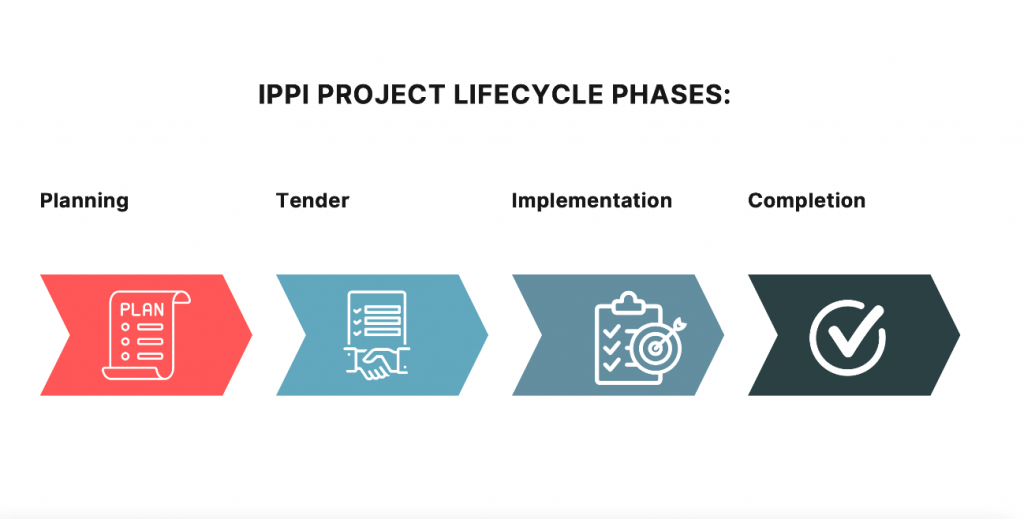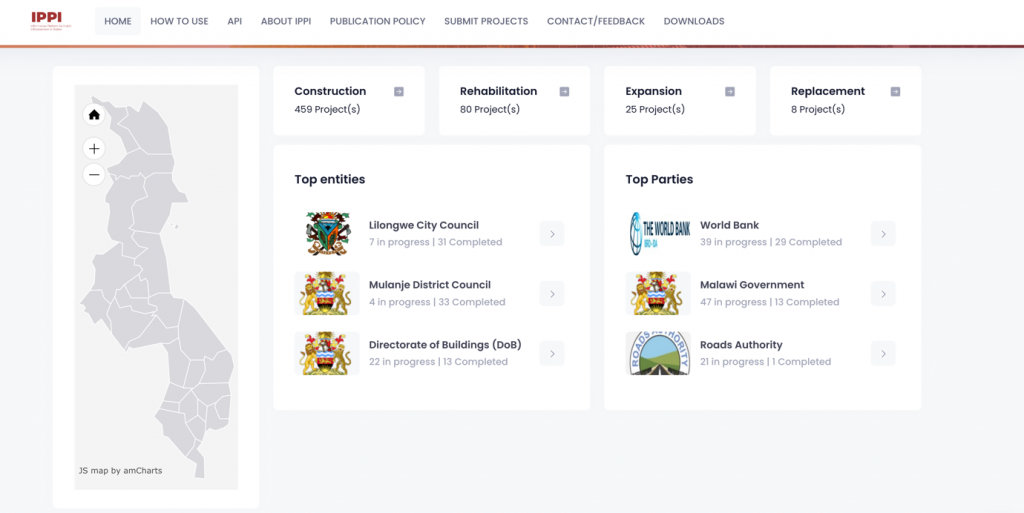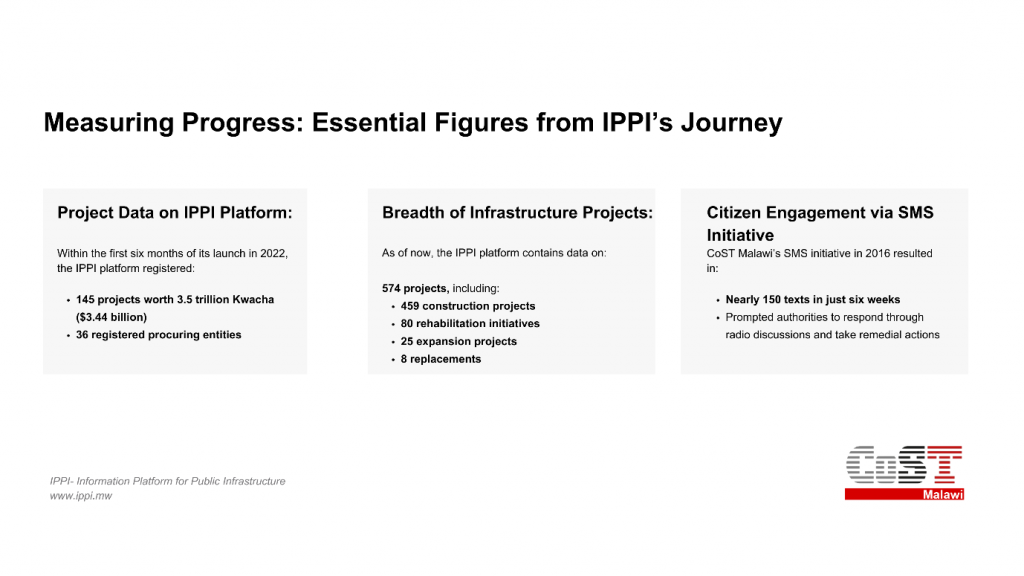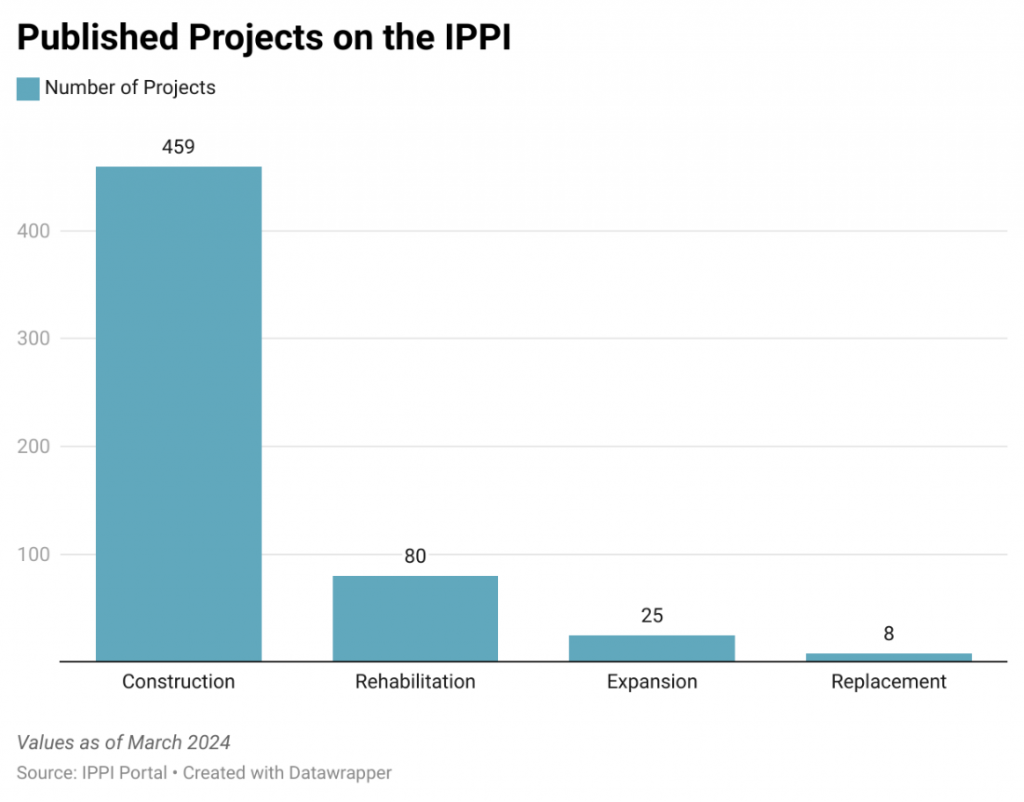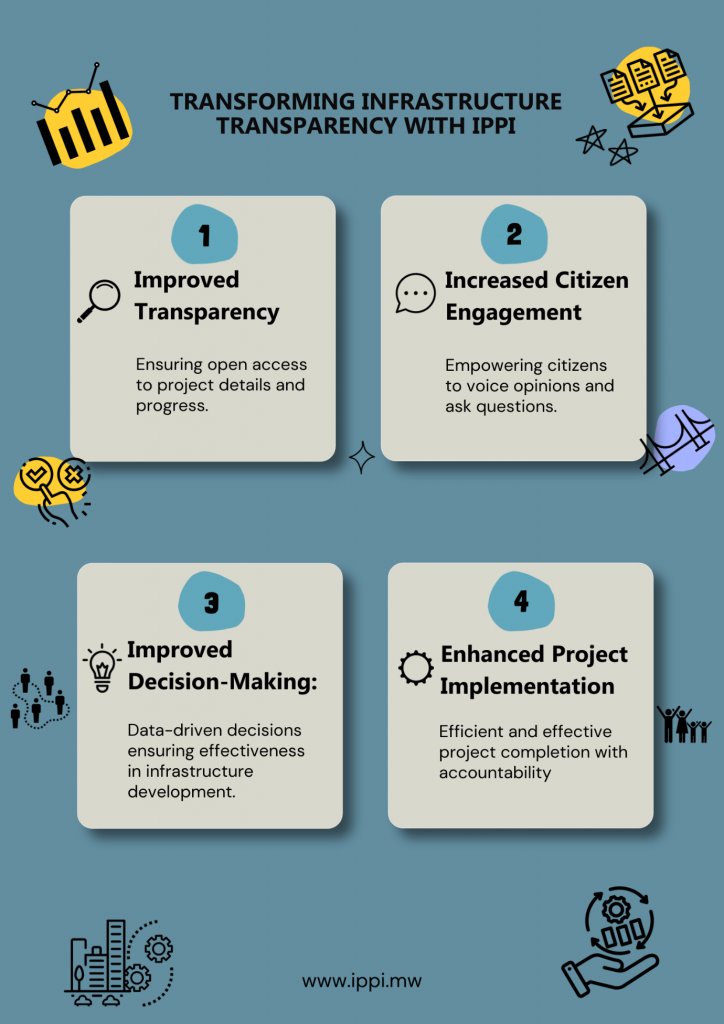By: Michael Cengkuru
Introduction
Access to reliable and accurate data is crucial for making informed decisions, especially in the infrastructure sector. In Malawi, traditional methods of data sharing have been plagued by various challenges. For instance, paper-based record-keeping systems have been prone to errors, loss, and damage, making it difficult to access and share accurate information. These manual processes often result in delays, inconsistencies, and a lack of transparency in the management of infrastructure projects.
Additionally, the lack of a centralized database has led to fragmented and inconsistent data across different government agencies and departments. This fragmentation makes it challenging for stakeholders to obtain a comprehensive overview of ongoing and completed projects, leading to duplication of efforts and inefficient resource allocation.
However, the Information Platform for Public Infrastructure (IPPI platform is driving change by providing a centralized, accessible, and transparent platform for sharing infrastructure data. Within the first 6 months of its launch in 2022, the platform had approximately ($3.44 billion), uploaded by . These projects focused on buildings, transport and water.buildings, transport and water.
What is IPPI?
The IPPI is an online platform that goes beyond simply publishing public infrastructure project information. It’s a powerful tool designed to empower stakeholders and promote transparency throughout the entire project lifecycle, from tender to completion. Developed and the National Construction Industry Council (NCIC), acting under a consortium of the Partnership for Transparency Fund (PTF), andthe African Institute for Corporate Citizenship (AICC) and Integrity Platform (IP). The project is funded by the European Union.
IPPI fosters a two-way street for information.
Empowering Stakeholders: Key players like civil society organizations (CSOs), media outlets, and the general public can access a wealth of data on IPPI. This data transparency allows them to not only stay informed on project details but also actively participate by submitting feedback and questions for relevant entities to address.
Real Citizen Engagement: The platform goes beyond just data – it facilitates real citizen engagement. For example, CoST Malawi’s SMS initiative in 2016 was an innovative program allowed citizens to easily report infrastructure concerns via text message. The overwhelming response – nearly 150 texts in just six weeks – highlighted the importance of citizen voices. CoST Malawi didn’t just collect these concerns; they ensured they reached the authorities. This transparency fostered accountability, with authorities responding through radio discussions and taking remedial actions where necessary.
Increased Transparency and Accountability: The IPPI’s impact goes beyond reactive measures. CoST Malawi’s work training procuring entities on best practices has measurably increased both proactive and reactive disclosure of project information. This not only empowers stakeholders but also further the culture they are creating of transparency within the infrastructure sector. By allowing stakeholders to monitor and evaluate projects, IPPI helps to improve project implementation, enhancing efficiency and effectiveness. Ultimately, this transparency fosters a sense of ownership and accountability, especially among citizens, leading to a more positive and successful outcome for Malawian infrastructure projects.
Key people and organisations such as civil society organizations (CSOs), the media, interested stakeholders, and the public can access infrastructure data in Malawi through the IPPI platform.
They can also post feedback and questions for relevant entities to respond to. In allowing these stakeholders to monitor and evaluate projects, it helps to improve project implementation, enhancing efficiency and effectiveness. This creates a sense of ownership and accountability, especially among citizens, and continues building on the culture of transparency.
A Wealth of Data at Your Fingertips and the Power of Transparency
The IPPI platform offers a treasure trove of information, making it an invaluable resource for stakeholders. Here’s a glimpse into the type of data available:
- Project Breadth: Explore details on 574 projects, including 459 construction projects, 80 rehabilitation initiatives, 25 expansion projects, and 8 replacements.
- Search Simplicity: Effortlessly navigate this wealth of data using the platform’s intuitive search functions. Filter projects by type, location, current status, and the implementing entity responsible.
But IPPI’s significance extends far beyond the numbers. The platform serves as a powerful tool for promoting transparency and accountability in Malawi’s infrastructure sector. This is underscored by the findings from CoST Malawi’s Fourth Assurance Report in 2021, which assessed data disclosure on 33 projects across three regions.
| CoST Assurance Report Highlights: The report shed light on several critical issues, including:
· Management Challenges: The report identified troubling instances of delayed payments and cost overruns in some projects, pointing to potential management weaknesses. · Competition Concerns: A lack of proper tender advertisement for certain road projects was flagged. This could restrict competition and open the door to corruption. · Cutting Corners: In some cases, budgetary constraints appear to have been prioritized over quality construction practices, leading to concerns about the durability of these projects. · Planning Shortfalls: The Ekwendeni-Ezonweni road project exemplified a troubling lack of planning. Incredibly, project design was still underway even while construction had begun. · Project Delays and Suspensions: One project suffered significant delays due to late payments and misplaced payment certificates, ultimately resulting in its suspension.
|
These findings underscore the importance of transparency and accountability in infrastructure development. The IPPI platform plays a pivotal role in this by providing a centralized, accessible, and transparent platform for sharing infrastructure data throughout Malawi. By uncovering these issues, the CoST assurance process strengthens accountability and fosters improvements in project implementation, ultimately leading to a more efficient and effective infrastructure sector. This is vital on projects that are transforming lives, such as the ongoing infrastructure developments supported by CoST. These projects are not only improving the quality of life for Malawians but also setting new standards for transparency, efficiency, and accountability in public infrastructure
IPPI – A Catalyst for Change in Malawi’s Infrastructure
The IPPI platform has emerged as a transformative force in Malawi’s infrastructure sector. It’s more than just a repository of data; it’s a powerful tool fostering participation, transparency, and accountability. By providing a centralized, accessible, and transparent platform for infrastructure data, IPPI is changing the game.
Empowering Malawi: IPPI’s Swift Data Revolution and Its Far-Reaching Impact: In a remarkably short time, IPPI has gathered extensive data on hundreds of projects, representing billions of dollars in investment and holding the promise of benefiting countless lives. This treasure trove of information empowers a diverse array of stakeholders – from government officials and civil society organizations to journalists and citizens – providing them with crucial insights into Malawi’s evolving infrastructure landscape.
Illuminating Progress: IPPI’s Role in Highlighting and Driving Change: Shining a Light, Driving Change: The platform doesn’t shy away from highlighting areas for improvement. The CoST Assurance Report findings serve as a powerful example. By identifying issues like delayed payments, lack of tender advertising, and budgetary shortcuts, IPPI empowers stakeholders to hold authorities accountable and advocate for better practices.
Empowering Citizen Voices: Furthermore, IPPI facilitates real citizen engagement. The success of the SMS platform demonstrates beautifully demonstrates citizens’ desire to be involved. Citizens now have a direct line to report concerns and seek answers. This fosters a sense of ownership and ensures that infrastructure projects truly serve the needs of the Malawian people.
Transparency for Efficiency and Effectiveness: Ultimately, IPPI’s commitment to open data and citizen engagement is delivering on its core promise: enhancing transparency, efficiency, and effectiveness in Malawi’s infrastructure sector. The platform is not just sharing information; it’s driving real change, ensuring that critical infrastructure projects are completed on time, within budget, and to the highest quality standards. The data and examples shared throughout this explanation serve as clear evidence that IPPI is more than just a platform – it’s a catalyst for positive transformation in Malawi.

